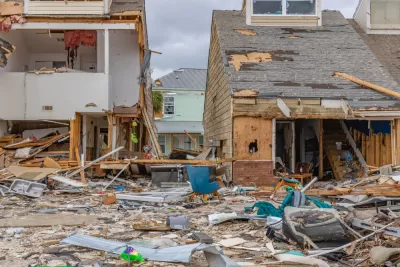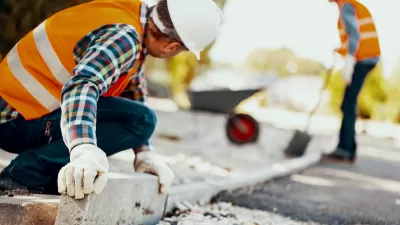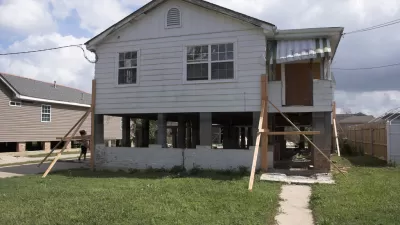Disaster preparedness efforts need to take into account that homeowners in vulnerable areas don’t take action even when the risks are clear.

"The conventional wisdom is that if people knew the threat they faced [from climate change] and believed measures to protect their home would work (and had the money to act) they’d do the logical thing and try to keep their family safe," writes Kate Yoder. But a study published in the journal Climatic Change reports that knowledge about climate change does not result in homeowners taking action to prepare for threats to their homes.
The researchers explored various reasons behind the lack of action by residents in New Hanover County in North Carolina, a coastal area hit hard by hurricanes, reports Yoder. "People do things all the time that they know are risky, like smoking cigarettes and driving cars. And when it comes to hurricanes, insurance and assistance from the Federal Emergency Management Agency might have lulled people into complacency, [Tracy] Kijewski-Correa said."
Various strategies can be used to counter the inaction, including the fostering of social norms, where residents model preparedness for others, and government mandates. Promoting the financial benefits of preparedness can also work, notes Yoder. "'Think about how many times [real-estate agents] show off the kitchen and the brand-new bathrooms,' Kijewski-Correa said. 'How many times do they the show off the roof that will actually keep your family alive in a hurricane?'"
FULL STORY: If facts don’t make you prepare for a hurricane, what does?

Alabama: Trump Terminates Settlements for Black Communities Harmed By Raw Sewage
Trump deemed the landmark civil rights agreement “illegal DEI and environmental justice policy.”

Study: Maui’s Plan to Convert Vacation Rentals to Long-Term Housing Could Cause Nearly $1 Billion Economic Loss
The plan would reduce visitor accommodation by 25% resulting in 1,900 jobs lost.

Why Should We Subsidize Public Transportation?
Many public transit agencies face financial stress due to rising costs, declining fare revenue, and declining subsidies. Transit advocates must provide a strong business case for increasing public transit funding.

Paris Bike Boom Leads to Steep Drop in Air Pollution
The French city’s air quality has improved dramatically in the past 20 years, coinciding with a growth in cycling.

Why Housing Costs More to Build in California Than in Texas
Hard costs like labor and materials combined with ‘soft’ costs such as permitting make building in the San Francisco Bay Area almost three times as costly as in Texas cities.

San Diego County Sees a Rise in Urban Coyotes
San Diego County experiences a rise in urban coyotes, as sightings become prevalent throughout its urban neighbourhoods and surrounding areas.
Urban Design for Planners 1: Software Tools
This six-course series explores essential urban design concepts using open source software and equips planners with the tools they need to participate fully in the urban design process.
Planning for Universal Design
Learn the tools for implementing Universal Design in planning regulations.
Smith Gee Studio
Alamo Area Metropolitan Planning Organization
City of Santa Clarita
Institute for Housing and Urban Development Studies (IHS)
City of Grandview
Harvard GSD Executive Education
Toledo-Lucas County Plan Commissions
Salt Lake City
NYU Wagner Graduate School of Public Service





























